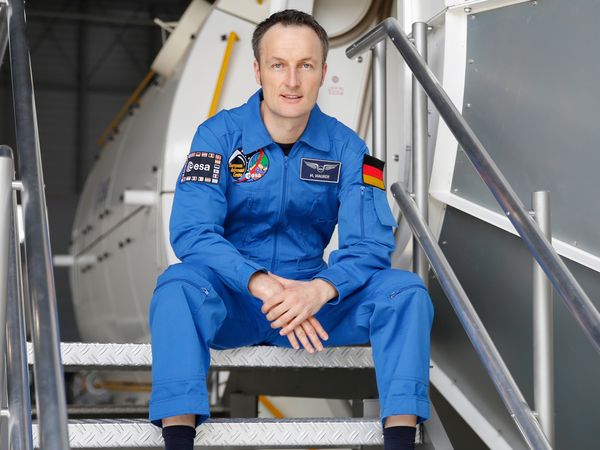Cologne as Europe's moon city, moon sand from the Eifel region and the Rhine Boulevard as the perfect place to ground an astronaut. Matthias Maurer, ESA astronaut, talks to us about Cologne, doing research in space and Cologne's proposed LUNA facility.
“When I grow up – I’m going to be an astronaut.” Is that something you knew already when you were a little boy?
When I was a kid, I wanted to be a pilot. I only dared dream of being an astronaut when I was a grown-up. Being an astronaut appeals to me because it combines so much. Like, the opportunity to do science and work at the cutting edge of science. Rocket-propelled space flight is really at the limits of what we can achieve with today's technology! Plus, I'm fascinated by interdisciplinary and intercultural nature of the work. Then to top it off there's the adventure! What greater adventure is there today than becoming an astronaut?
You are about to go on your first mission to the International Space Station (ISS). What exactly will your research work on the ISS involve?
In the 6 months we're up there, we'll probably be working on something like 100 to 120 scientific experiments. As a rule, they will be medical and life science experiments. How does the body behave in zero gravity? Or we might carry out research into new materials. We will also be experimenting with combustion. This is because combustion occurs differently in weightlessness than it does on
the ground. This is important for the fuels we use, but also in case a fire breaks out on board the station.
Currently, you are project manager for the proposed LUNA facility at the European Astronaut Centre in Cologne (EAC). What exactly will happen there?
At the moment we have training facilities for the European ISS contingent at the Astronaut Centre in Cologne. But in the future, we would also like to train astronauts for moon missions. We want to bring together astronauts, engineers and scientists as well as students who are enthusiastic about space and let them work together preparing for the future of moon exploration at this new LUNA facility. The LUNA facility consists of various components, one of which is the approx. 700 square meter moon surface. It is covered in moon sand. But, of course, it is not real moon sand. It's from the Eifel region and has the same chemical composition and grain size distribution. This allows for very realistic training. What's more, there will be various laboratories and rooms as well as a
variety of technical equipment that will enable us to simulate and train for the moon at the Cologne site.
How relevant is Cologne as a location for your research?
The Astronaut Centre is the only place in Europe that trains astronauts. Every astronaut who flies to the ISS, including the Russians, the Americans, the Canadians, the Japanese and, of course, the Europeans – comes to Cologne and learns with us how our European module, the Columbus space laboratory,
works on the ISS. We would like to expand this to include flights to the moon and, later, moon landings. That's why Cologne is, so to speak, the only place in Europe where this is possible. We want to make Cologne Europe's moon city. And that's why we need the LUNA facility.
Is there a place in Cologne that grounds you particularly?
One place I really like is the Rhine Boulevard. There is a wonderful view of the Old Town and the Cathedral from there. You can enjoy the river and sunshine and reflect on what people will remember of us in 500- or 1,000-years’ time. Perhaps they will think about how our journey to space and the
moon started in Cologne ...
